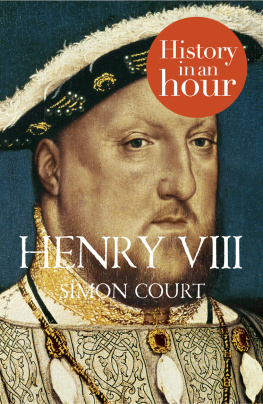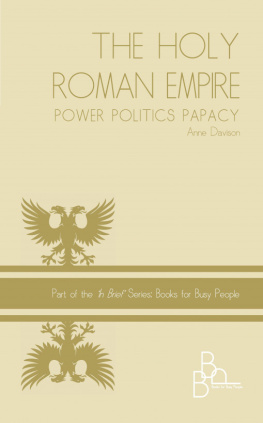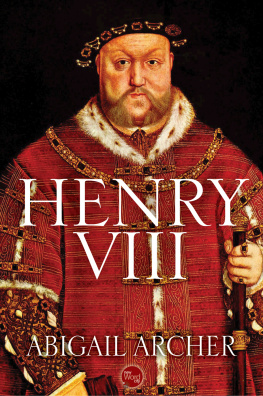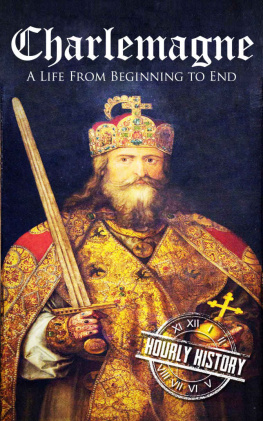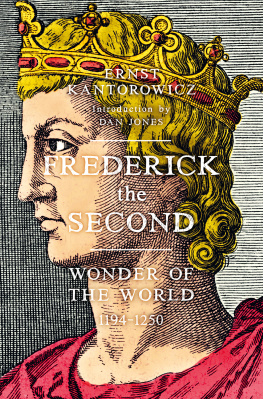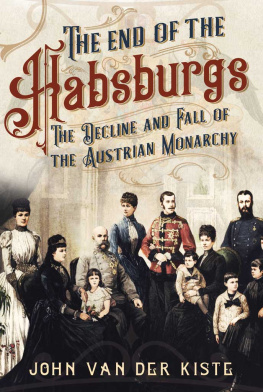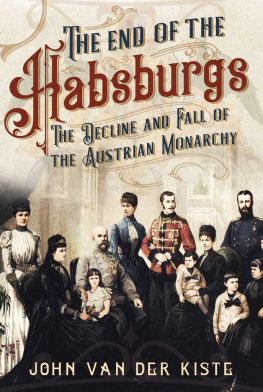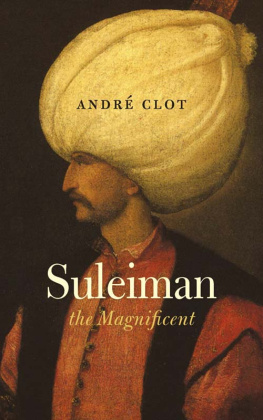Four Princes
Also by John Julius Norwich
Mount Athos (with Reresby Sitwell, 1966 )
The Normans in the South, 10161130 ( 1967 )
Sahara ( 1968 )
The Kingdom in the Sun, 11301194 ( 1970 )
A History of Venice: The Rise to Empire ( 1977 )
A History of Venice: The Greatness and the Fall ()
Fifty Years of Glyndebourne ( 1985 )
A Taste for Travel ( 1985 )
The Architecture of Southern England ( 1985 )
Byzantium: The Early Centuries ()
A Travellers Companion to Venice ( 1990 )
A History of Byzantium: The Apogee ( 1991 )
Byzantium: The Decline and Fall ( 1995 )
A Short History of Byzantium ()
The Twelve Days of Christmas ( 1998 )
Shakespeares Kings ( 1999 )
Paradise of Cities: Venice in the Nineteenth Century ( 2003 )
The Middle Sea: A History of the Mediterranean ()
Trying to Please: A Memoir ( 2008 )
The Popes: A History ( 2011 )
A History of England in Places ()
Sicily: A Short History from the Ancient Greek to Cosa Nostra ( 2015 )
Edited by John Julius Norwich
Great Architecture of the World ( 1975 )
The Italian World: History, Art, and the Genius of a People ( 1983 )
Britains Heritage ()
The New Shell Guides to Great Britain ( 1987 )
The Oxford Illustrated Encyclopaedia of the Arts ( 1990 )
The Treasures of Britain ( 2002 )
The Duff Cooper Diaries ( 2005 )
The Great Cities in History ( 2009 )
Darling Monster ( 2013 )
Cities that Shaped the Ancient World ( 2014 )
Four Princes
Henry VIII, Francis I, Charles V,
Suleiman the Magnificent and the
Obsessions that Forged Modern Europe
JOHN JULIUS NORWICH

Atlantic Monthly Press
New York
Copyright John Julius Norwich 2016
All rights reserved. No part of this book may be reproduced in any form or by any electronic or mechanical means, including information storage and retrieval systems, without permission in writing from the publisher, except by a reviewer, who may quote brief passages in a review. Scanning, uploading, and electronic distribution of this book or the facilitation of such without the permission of the publisher is prohibited. Please purchase only authorized electronic editions, and do not participate in or encourage electronic piracy of copyrighted materials. Your support of the authors rights is appreciated. Any member of educational institutions wishing to photocopy part or all of the work for classroom use, or anthology, should send inquiries to Grove Atlantic, 154 West 14th Street, New York, NY 10011 or .
First published in Great Britain in 2016 by John Murray (Publishers), an imprint of Hachette UK
Published simultaneously in Canada
Printed in the United States of America
First Grove Atlantic hardcover edition: April 2017
Library of Congress Cataloguing-in-Publication data available for this title.
ISBN 978-0-8021-2663-4
eISBN 978-0-8021-8946-2
Atlantic Monthly Press
an imprint of Grove Atlantic
154 West 14th Street
New York, NY 10011
Distributed by Publishers Group West
groveatlantic.com
17 18 19 20 10 9 8 7 6 5 4 3 2 1
For Moll
Contents
Preface
Bluff King Hal was full of beans;
He married half a dozen queens.
For three called Kate they cried the banns,
And one called Jane, and a couple of Annes.
I learned those lines, and the several stanzas that followed them, when I was about four years old. They came from a wonderful book called Kings and Queens , by Herbert and Eleanor Farjeon, in which each spread bore on the left a full-colour picture of each monarch in turn, and on the right a humorous verse. My mother bought two copies, cut them up and pasted the lot on to a large screen in the nursery; thus I was almost literally brought up with them, and cannot remember a time when I didnt recognise them all, as well as the order in which they came. Since we started with William the Conqueror and there were six kings or queens to a column, Henry VIII was the second one down in the fourth; I felt I knew him well.
Getting to know Francis I took me a bit longer. The Farjeons, alas, never got around to doing for French history what they had done for English, and in those pre-war days primary historical education in England was almost unbelievably blinkered: never were we told what was going on in Europe, except on those occasions when we won a battle abroad, like Agincourt or Blenheim. We knew nothing about Italy, where the British hardly ever fought a battle before the twentieth century that of Maida (which gave its name to Maida Vale) in 1806 is the only one I can think of offhand, and we were certainly never told about that and only a very little about Spain principally the story of the Armada. As for the Byzantine Empire, which lasted over a thousand years and dominated the civilised world for centuries, I think I had barely heard of it before I went to Oxford. Francis, anyway, had to wait until we settled in France, when my parents and I always stopped at Fontainebleau on our way to the south and I went on a bicycle tour among the chteaux of the Loire.
Charles V was still more of a challenge. During my formative years I suppose we thought of him when we thought of him at all as a German; and since we were at war with Germany we would have cold-shouldered him on principle. (Of course, he was also Spanish, but then we werent terribly keen on Spain either.) Nor, it must be said, did we like the look of him, with that dreadful Habsburg jaw and chin. Besides, he was against Martin Luther, on whom most Anglican schools were rather keen. I obviously learned a certain amount about him when I was writing about the Papacy. He had little imagination, I wrote, and no ideas of his own which now strikes me as a bit unfair. He was certainly a lot more intelligent than his majestically boring son Philip II. I suspect in any case that he still remained a somewhat shadowy figure in my mind until I came to tackle the book that you now hold in your hands.
And so to Suleiman the Magnificent. Of course, he was always an outsider. But did those English preparatory and public schools ever mention the Ottoman Empire? Did they ever tell us about the Battle of Mohcs one of the greatest military encounters that Central Europe has ever seen? Or of how the Turks twice reached the gates of Vienna and surely most surprising of all of how in 1543 they besieged and plundered the city of Nice, of all places, enthusiastically supported by a French army? Of course they didnt. I think I first came to know Suleiman insofar as I know him at all, since none but his very few intimates knew him well in the 1970 s, when I made a series of six films for the BBC about the antiquities of Turkey, the last of the series being devoted to the Ottomans. Biographies of him are in short supply. Antony Bridge, a former Dean of Guildford, produced one, but the definitive biography in English remains to be written and the task wont be easy. Since Kemal Atatrk introduced the Latin alphabet in 1928 , the old Arabic alphabet has not even been taught in Turkish schools. The result is that no one in Turkey, apart from a few scholars, can read any book published before that date.
Henry, Francis, Charles and Suleiman when did I begin to see them as the single phenomenon that they collectively were, and the possible subject of a book of their own? First, I think, ten or twelve years ago, when I was writing about the Mediterranean; but the idea was then a pretty nebulous one and I had other things on my mind. It began to assume a rough shape only five years later, when although I was principally concerned with the Popes it struck me once again what giants those four men had been, how completely they had overshadowed their predecessors and successors and, finally, how deep was the imprint they left on the century in which they lived. There was, I felt reasonably sure, a book there somewhere. I only hope this is it.


